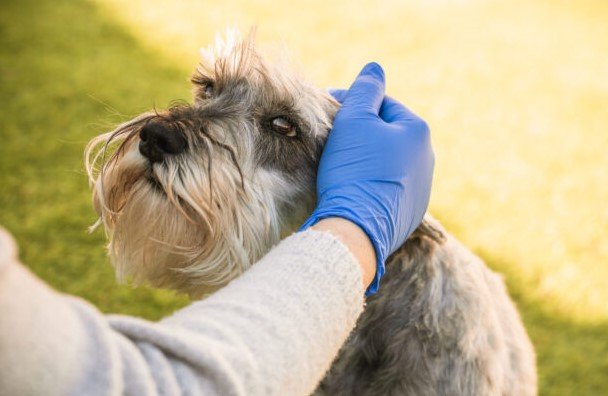A mysterious respiratory illness is rapidly spreading among dogs in Georgia, and veterinarians are struggling to get a grip on its cause. With symptoms including a persistent whooping cough and low energy, the illness is proving difficult to treat and track, leaving both pet owners and professionals in a state of uncertainty.
Unidentified Illness Spreads Across Georgia
Over the past few months, veterinarians throughout Georgia have been reporting a sharp increase in cases of an unknown respiratory illness affecting dogs. The Georgia Veterinary Medical Association has confirmed the troubling rise in cases, but the illness’s exact nature remains elusive.
“It’s frustrating,” said Mary Frances Wylie, a veterinarian at Northside Wesleyan Animal Hospital. “I think because we just don’t know exactly what it is and because if we cultured and took a swab of one dog that’s not necessarily what it’s gonna be for every dog.” Wylie, like many others, is baffled by the illness, which appears to be airborne and highly contagious.
This new and unidentified ailment has been difficult to identify and treat due to its resistance to standard medications. In many cases, veterinarians are forced to use multiple rounds of treatments before seeing any results. The illness’s elusive nature only adds to the frustration, with pet owners struggling to get their pets back to health.

Symptoms Include Persistent Cough and Low Energy
The most notable symptoms of this illness include a distinctive whooping cough and low energy levels. While these symptoms are common in many respiratory diseases, their intensity in the affected dogs has raised red flags among veterinarians. Some dogs also exhibit symptoms similar to those seen in kennel cough, but the illness seems to be more severe and difficult to treat.
“At our clinic alone, we’ve seen around 15 dogs with these symptoms,” said Dr. Wylie. “They come in with that classic whooping cough, and they’re just exhausted—no energy, really low spirits. It’s worrying to see how it’s affecting them.”
This illness has raised concerns not only for dogs in Georgia but also for their owners, as the airborne nature of the disease makes complete avoidance nearly impossible. It’s unclear whether the illness is something that can be passed from one dog to another through normal social interaction or if it’s linked to specific environments or regions.
Difficulty in Identifying the Illness
The lack of a clear diagnosis has led to challenges in managing the illness. Many treatments that are typically effective for canine respiratory issues have not yielded results. Veterinarians have been left to experiment with different medications, but recovery is slow and unpredictable. In some cases, dogs have required several rounds of medication before their symptoms start to subside.
The situation has led to growing concerns about the illness’s spread, especially as the cause remains a mystery. Some veterinarians speculate that it could be a new strain of an existing virus, but without clear testing and research, this remains a theory. The lack of information is a constant source of anxiety for both veterinarians and dog owners.
“This is something we just don’t know much about right now,” Wylie continued. “We’re still trying to understand how it spreads and how to treat it properly. It’s frustrating to see pets suffer, and we can only do so much without the right information.”
How to Protect Your Dog
For concerned dog owners, the best course of action is to stay vigilant. If your dog begins to exhibit symptoms like a persistent cough, low energy, or other respiratory signs, it’s important to contact your local veterinarian immediately. The illness’s airborne nature means that it’s difficult to prevent dogs from contracting it altogether, but early detection and treatment can help manage the symptoms.
Local shelters, like Palmetto Animal League, have also seen an uptick in dogs presenting similar symptoms, with some available for adoption after their recovery. “We’re doing our best to make sure the animals are well taken care of and treated,” said one shelter representative. “But it’s really hard to track something that we don’t fully understand.”
What’s Next for Dog Owners in Georgia?
With no clear answers yet, the focus is on raising awareness and providing as much information as possible to the public. Veterinarians are urging dog owners to report any unusual symptoms in their pets, as early intervention could be the key to keeping this illness under control.
The situation is still developing, and with more cases likely to emerge, the need for research and collaboration among veterinary professionals has never been more critical. “Until we know exactly what we’re dealing with, it’s important for pet owners to stay in touch with their vets and be proactive,” Wylie stressed. “We’re all in this together, and we’ll get through it.”
